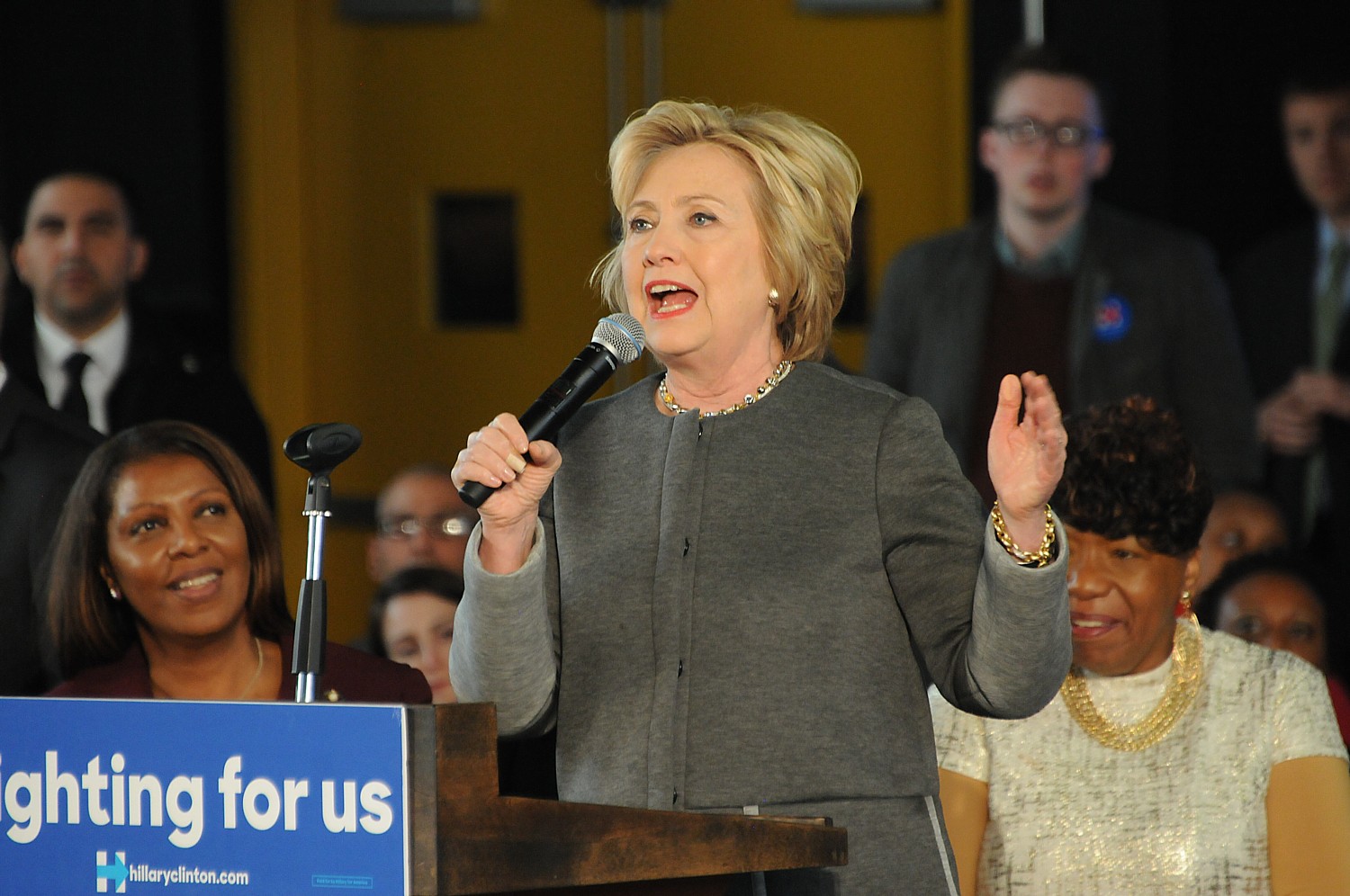
Hillary Clinton has announced a new plan to protect Americans from unjustified price hikes of long-available prescription drugs with limited competition, like EpiPens and pyrimethamine, the drug for a disease related to AIDS that Turing Pharmaceuticals raised the price of by more than 5,000%. After speaking out against excessive prices for prescription drugs throughout the campaign and, last week, calling for Mylan to lower its EpiPen price, Clinton believes that Mylan’s recent actions have not gone far enough to remedy their outrageous price increase. So today, Clinton is proposing a new set of strong tools – including a consumer protection group – that will let the government take effective action in such cases where public health is put at risk by an unjustified, outlier price increase for a treatment long available on the market with limited competition.
“Over the past year, we’ve seen far too many examples of drug companies raising prices excessively for long-standing, life-saving treatments with little or no new innovation or R&D,” Clinton said. “It’s time to move beyond talking about these price hikes and start acting to address them. All Americans deserve full access to the medications they need — without being burdened by excessive, unjustified costs. Our pharmaceutical and biotech industries are an incredible source of American innovation and revolutionary treatments for debilitating diseases. But I’m ready to hold drug companies accountable when they try to put profits ahead of patients, instead of back into research and innovation.”
Today, building off the comprehensive plan she offered earlier in the campaign last year, Clinton is calling for action to protect consumers from unjustified prescription drug price increases by companies that are marketing long-standing, life-saving treatments and face little or no competition. She’ll start by convening representatives of Federal agencies charged with ensuring health and safety, as well as fair competition, to create a dedicated group charged with protecting consumers from outlier price increases. They will determine an unjustified, outlier price increase based on specific criteria including: 1) the trajectory of the price increase; 2) the cost of production; and 3) the relative value to patients,among other factors that give rise to threatening public health.
Should an excessive, outlier price increase be determined for a long-standing treatment, Clinton’s plan would make new enforcement tools available including:
- Making alternatives available and increasing competition: Directly intervening to make treatments available, and supporting alternative manufacturers that enter the market and increase competition, to bring down prices and spur innovation in new treatments.
- Emergency importation of safe treatments: Broadening access to safe, high-quality alternatives through emergency importation from developed countries with strong safety standards.
- Penalties for unjustified price increase to hold drug companies accountable and fund expanded access: Holding drug makers accountable for unjustified price increases with new penalties, such as fines – and using the funds or savings to expand access and competition.
Her plan will establish dedicated consumer oversight at our public health and competition agencies. They will determine an unjustified, outlier price increase based on specific criteria including: 1) the trajectory of the price increase; 2) the cost of production; and 3) the relative value to patients, among other factors that give rise to threatening public health.
In combination with her broader plan – which addresses the costs facing consumers from both long-standing and patented drugs – these new tools to address price spikes for treatments available for many years will lower the burden of prescription drug costs for all Americans.
This plan would impact the many examples we’ve seen over the past year of drug companies raising prices excessively for drugs that have been available for years – from Turing raising the price of pyrimethamine for AIDS patients by over 5,500 percent, to Mylan raising the price of the EpiPen by more than 400 percent. This is not an isolated problem: Between 2008 and 2015, drug makers increased the prices of almost 400 generic drugs by over 1,000 percent. Many of these companies are an example of a troubling trend—manufacturers that do not even develop the drug themselves, but acquire it and raise the price.
The immediate protections she is offering today build on her broader plan to lower prescription drug costs for all Americans that she released last year.
The full fact sheet is available here.
